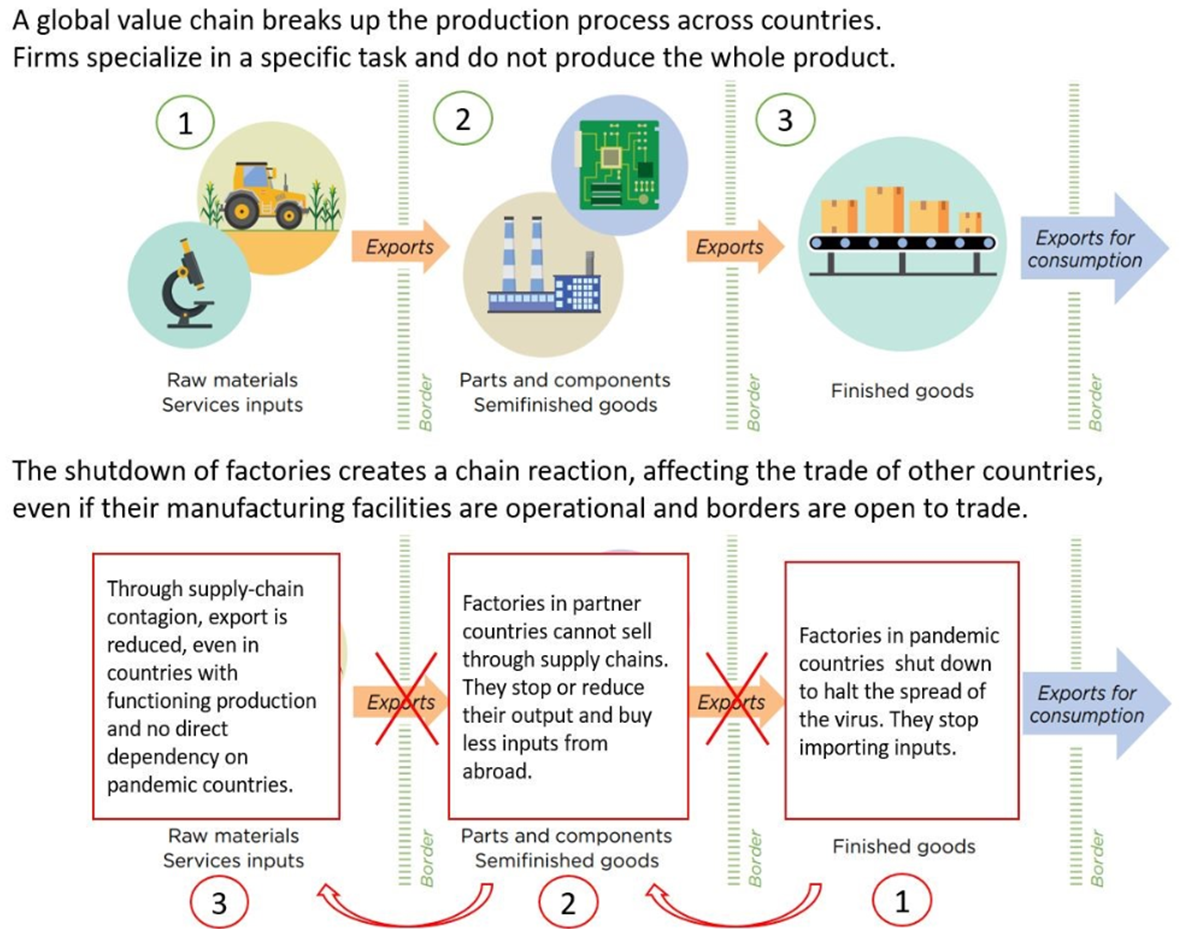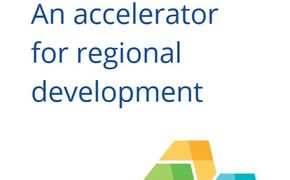On 23 July, the Policy Learning Platform organised an online meeting with the objective to explore how regional policymakers can foster European Value Chains (EVCs) towards greater European industrial sovereignty.
The COVID-19 emergency has sparked a public debate among European institutions and civil society on the importance to develop European Value Chains (EVCs) in strategic industries such as health or sanitary products. Global Value Chains (GVCs) are not only prone to disruption due to pandemics (COVID-19 crisis) or natural disasters but are also criticised for reducing industrial autonomy and for environmental considerations.

Figure 1. Global Value Chains (GVCs) and COVID-19 Crisis. Source: World Development Report 2020.
On 10 March 2020, the European Commission adopted the EU Industrial Strategy to lead the twin transitions towards climate neutrality and digital leadership. Such new paradigm implies the EU strategic autonomy in key technologies and access to raw materials, and involves multiple initiatives such as:
- the Important Projects of Common European Interest (IPCEI),
- a new EU pharmaceutical strategy in 2020,
- an Action Plan on Critical Raw Materials.
Here are the main highlights from the online discussion:
Fernando Merida Martin, Joint Research Centre (JRC), S3 Platform, presented the Thematic Specialisation Thematic Platforms as initiatives to promote European Value Chains (EVCs). European regions have partnered around areas of common interest and joined forces to:
- Avoid duplication,
- Exploit complementary strengths across the EU,
- Increase critical mass,
- Build synergies with other regional, national, and EU networks and initiatives.
For instance, the Partnership for Advanced Materials for Batteries covers the complete cycle of batteries from raw materials to recycling in Europe.
The COVID-19 crisis has impacted many value chains. For instance, the agri-food value chain has proven to be strategic for Europe and a specific trade approach at the EU-level must be taken. Additionally, there has been an increased demand for packaged agri-food products, which will require innovation in sustainable packaging.
Some European regions have supported initiatives to move towards European Value Chains (EVCs). In Interreg Europe project RECORD, with the help of the European Alliance Against Coronavirus, the region of Tuscany mapped its strengths and weaknesses to find ways to make the rail industry more resilient. From Interreg Europe project BRIDGES, research foresight to understand research agenda in five years has proven crucial to co-create the value chain today with other regions.
Susana Larrea, SPRI (Basque Business Development Agency) presented a policy change from the Interreg Europe project S34GROWTH. The Basque Country introduced an interregional voucher scheme in the context of the Basque Digital Innovation Hub (BDIH) working on Industry 4.0. The interregional voucher scheme aims to give economic assistance to Basque SMEs to use the capabilities of the BDIH but also some other strategic Digital Innovation Hubs in Europe. This is a way for policymakers to generate interregional collaboration and opportunities to build up European Value Chains (EVCs).
Regional policymakers, for instance, can support European Value Chains (EVCs) by:
- Taking advantage of European initiatives such as the Thematic Smart Specialisation Platforms to understand strengths and weaknesses of their territories in different value chains.
- Promoting public-private partnerships, which have proven to be key in dynamizing sectors and responding to the COVID-19 crisis.
- Supporting long-term strategic alignment around regional scientific and innovative capacities.
Presentations
- Arnault Morisson, Thematic Expert in Research and Innovation - presentation,
- Fernando Merida Martin, Joint Research Centre (JRC), S3 Platform - presentation,
- Susana Larrea, SPRI (Basque Business Development Agency), S34GROWTH - presenation,
- Ninetta Chaniotou, Regional Council of Kainuu, BRIDGES - presenatation,
- Veronica Elena Bocci, DITECFER District for Rail Technologies, RECORD - presentation,
- Gabriele Canali, Catholic University of Milan, FOODCHAINS4EUROPE - presentation
Interreg Europe Policy Learning Platform resources
- Read the news on the European Green Deal and COVID-19, implications for research and innovation
- Read the policy brief on Industry 4.0
- Watch the webinar on Public Procurement of Innovation (PPI)
- To know more about the Thematic Smart Specialisation Platforms
Image credit: Photo by Pixabay from Pexels









